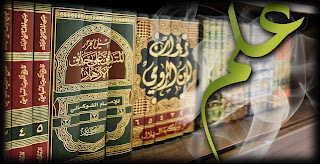Mahatma Gandhi
Mohandas Karamchand Gandhi was an Indian lawyer who became the primary leader of India's independence movement. Better known as Mahatma Gandhi, he not only led India to independence from British rule but also inspired movements for civil rights and freedom across the world in several other countries. Best remembered for his employment of nonviolent means of civil disobedience, he led Indians in the Dandi Salt March to protest against the British-imposed salt tax and launched the Quit India Movement, a mass protest demanding "an orderly British withdrawal" from India.
Born into a religious family in British India, he was raised by parents who emphasized on religious tolerance, simplicity and strong moral values. As a young man he went to England to study law and later started working in South Africa. There he witnessed rampant acts of racism and discrimination which angered him greatly. He spent over two decades in South Africa over the period of which he developed a strong sense of social justice, and led several social campaigns. Upon his return to India he became active in the Indian Independence Movement, ultimately leading his motherland to independence from the British rule. He was also a social activist who campaigned for women’s rights, religious tolerance, and reduction of poverty.
In the late 1920s the British government appointed a new constitutional reform commission under Sir John Simon but did not include any Indian as its member. This infuriated Gandhi who pushed through a resolution at the Calcutta
Congress in December 1928 demanding the British government to grant India dominion status or face another non co-operation campaign aimed at attaining complete independence for the country.The British did not respond and thus the Indian National Congress decided to declare the independence of India—the Purna Swaraj. On 31 December 1929, the flag of India was unfurled at the Lahore session of the Indian National Congress and the independence of India was declared.
The Congress called on to the citizens to pledge themselves to civil disobedience until India attained complete independence.During that time, the British’s Salt Laws which prohibited Indians from collecting and selling salt and forced them to pay for heavily taxed British salt were in place. Gandhi launched the Salt March, a non-violent protest against the British-imposed tax on salt in March 1930.He led a march of 388 kilometers (241 miles) from Ahmedabad to Dandi, Gujarat to make salt himself. He was joined by thousands of followers in this symbolic act of defiance against British rule. This led to his arrest and imprisonment along with over 60,000 of his followers. He continued playing an active role in the independence movement post his release.
The nationalist movement had gained much momentum by the time the World War II broke out in 1939. In the midst of the war, Gandhi launched another civil disobedience campaign, the Quit India Movement, demanding "an orderly British withdrawal" from India.He gave a speech launching the movement on August 8, 1942, calling for determined, but passive resistance.
Even though the movement received massive support, he also faced criticism from both pro-British and anti-British political groups. He was criticized for his strict refusal to support Britain in World War II, as some felt that it was unethical to not support Britain in its struggle against Nazi Germany.Despite the criticism, Mahatma Gandhi remained steadfast in his adherence to the principle of non- violence and called on all Indians to maintain disciple in their struggle for ultimate freedom. Within hours of his powerful speech, Gandhi and the entire Congress Working Committee were arrested by the British.
He was imprisoned for two years and released before the end of the war in May 1944The Quit India Movement became the most forceful movement in the history of the Indian independence struggle and is believed to have played a major role in securing the independence of India in 1947.





Comments
Post a Comment